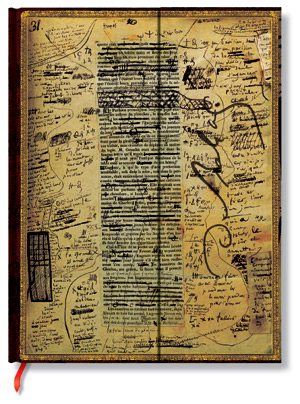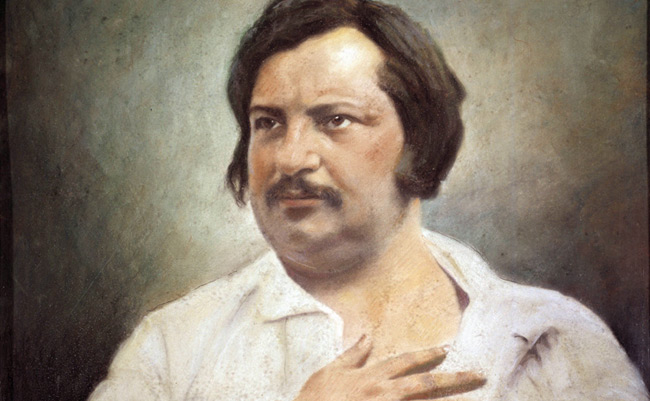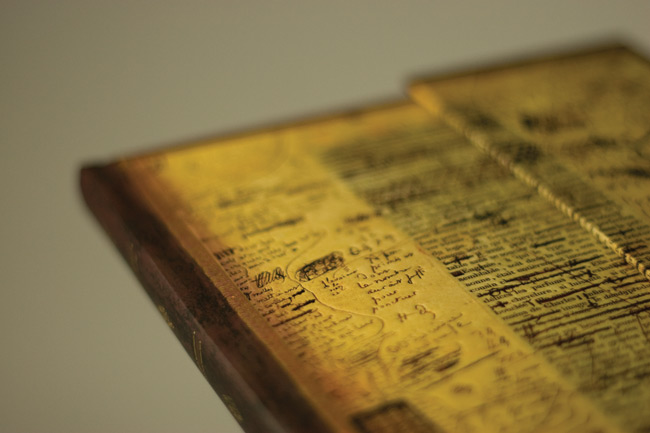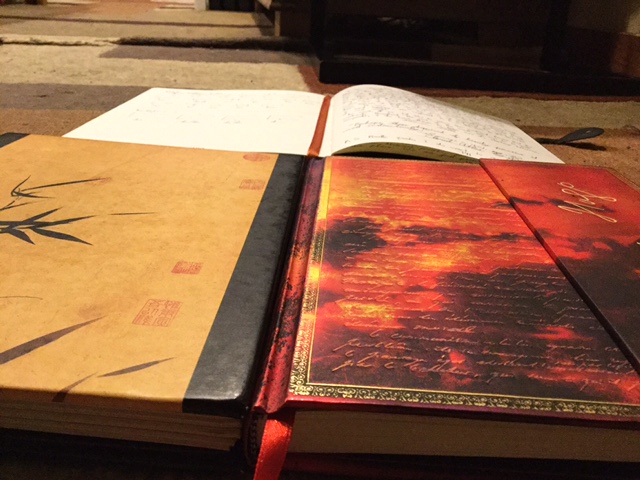Honoré de Balzac (1799 –1850) is renowned as one of the founders of realism in European literature. Some critics, including Émile Zola, consider him the father of the naturalist novel. He was also famous for a tremendous work ethic that bordered on self-destructive. His method of revision, which continued until the last possible moment, seemed designed to upset his printers and add chaos to the production process and to remind all involved of the messiness of creation.
An Original Manuscript Page by Balzac; Recreated on a Journal Cover
Our journal, Balzac, Eugénie Grandet, reproduces a page from Balzac’s original manuscript of Eugénie Grandet. The turmoil and striving inherent in life itself are reflected in this page. Eugénie Grandet is the French writer’s first bestselling novel and the most acclaimed of his career. It features characters ordinary yet nuanced, as do all Balzac’s nearly 100 plays, novels and short stories, collectively titled La Comédie Humaine. This tale of a father and daughter’s struggle with miserliness provides insights into post-Bonaparte French society and into the enduring human condition.
 |
 |
| Original Manuscript image courtesy of the Morgan Library & Museum |
This book is available in the Ultra, Mini, and Mini Reporter formats.






